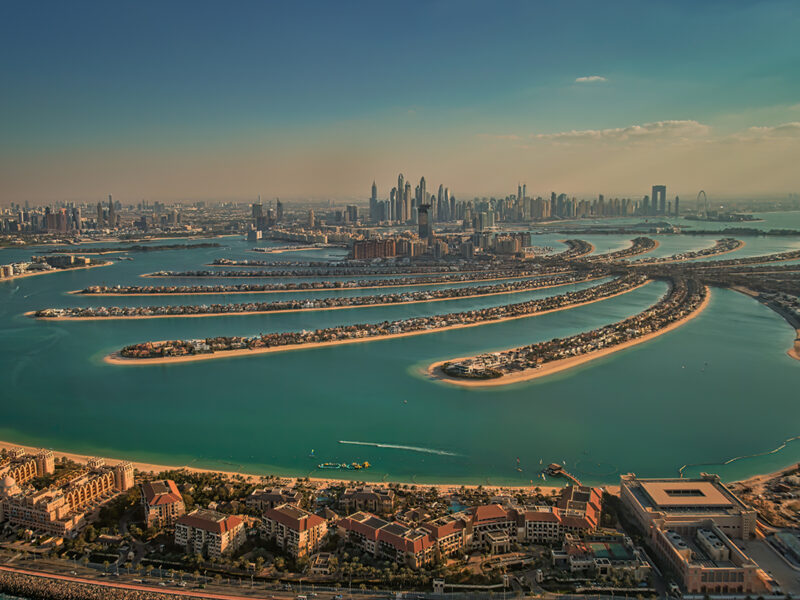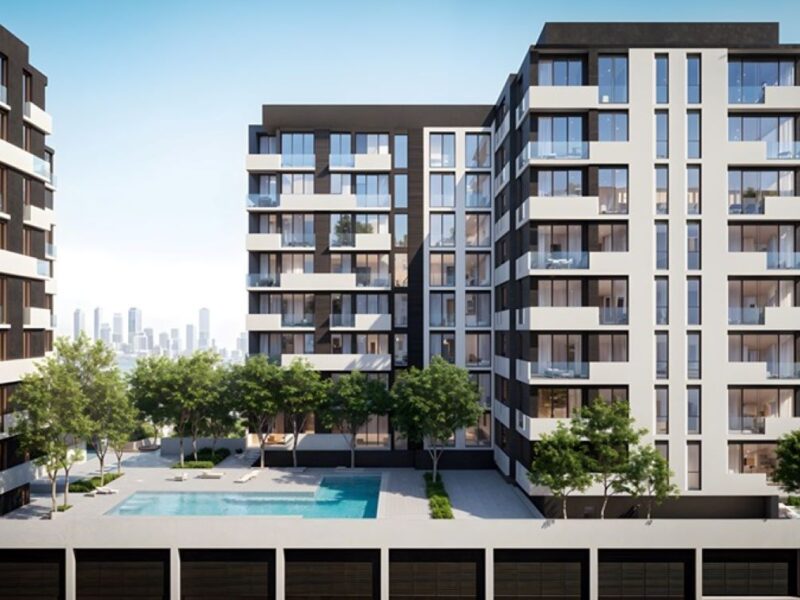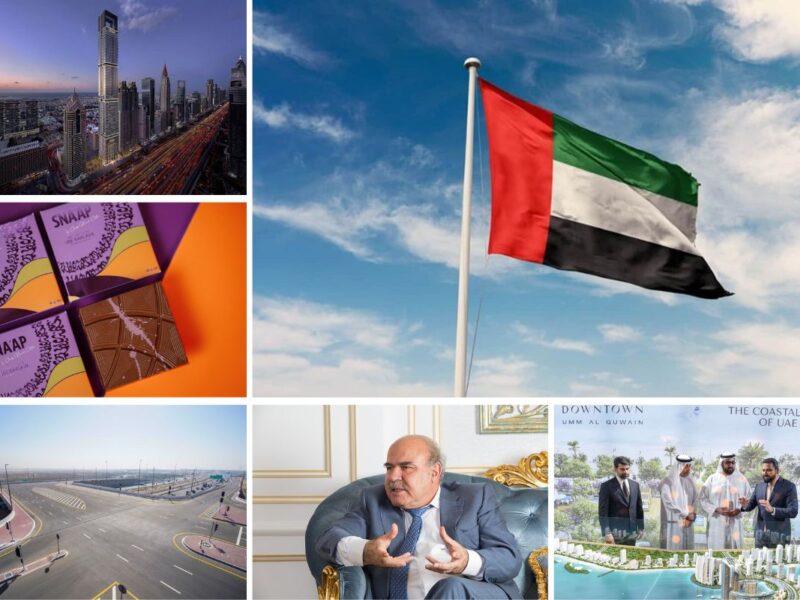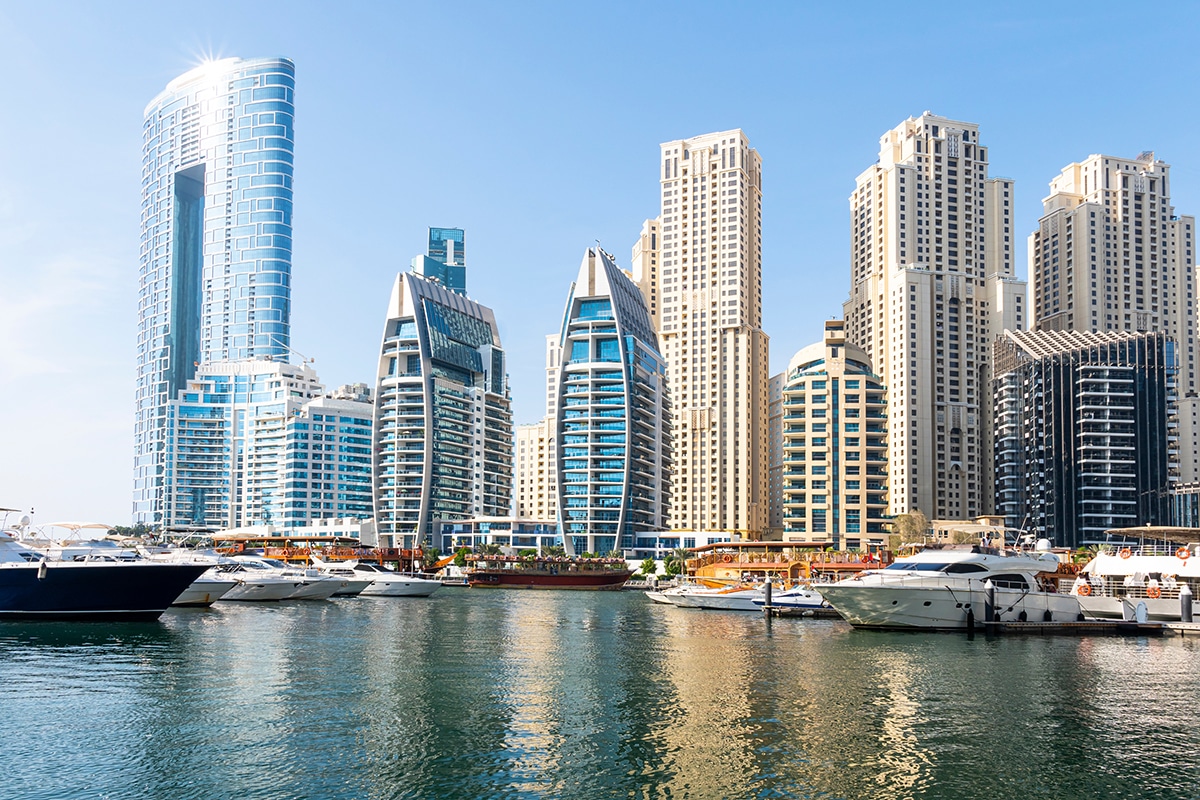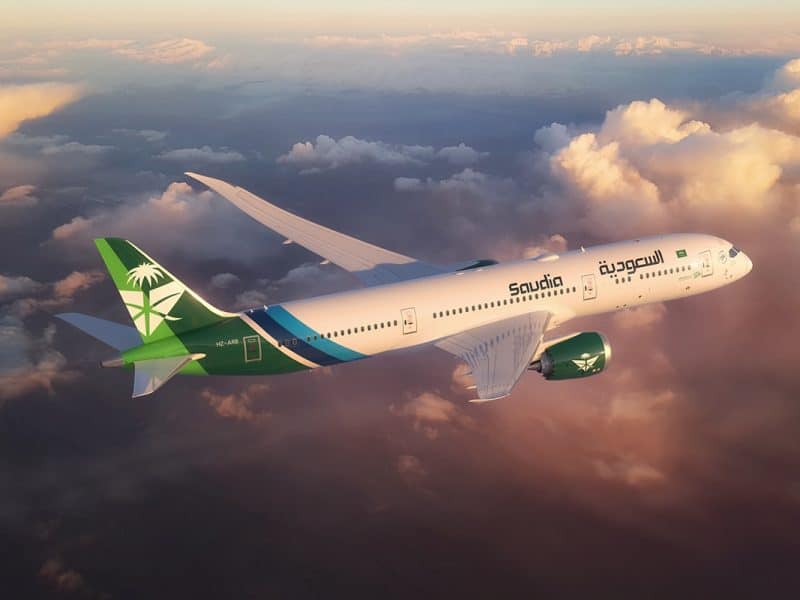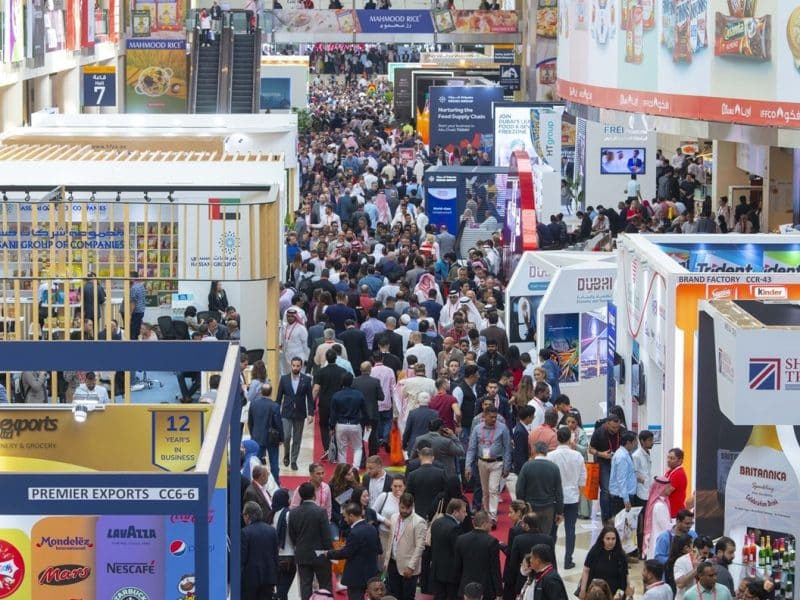Dubai’s buoyant off-plan property sector helped push residential prices up by around 18 per cent between October and December, according to commercial real estate specialist CBRE Middle East’s Q4 2024 review.
A comprehensive look at the Dubai real estate sector – taking in residential, commercial, hospitality, retail and industrial – shows overall positive signs for the emirate at the end of last year.
Dubai’s residential market delivered a very solid performance in Q4 2024, with average prices registering close to an 18 per cent increase compared to the year prior.
Dubai real estate analysis
This has been underpinned by an 18 per cent rise in average apartment prices and a 20 per cent increase in average villa prices, with average values reaching AED1,647 ($448.5) and AED2,024 ($551) per square foot, respectively.
Rental contract registrations increased by 7 per cent year-on-year versus the same period in 2023, primarily supported by a 9 per cent rise in renewal contracts and a 5 per cent increase in new registrations.
Tenants still broadly favour lease renewals to avoid the higher costs of new contracts, but this gap is narrowing as more new projects are delivered further from the city centre, offering more competitive rates and larger unit sizes.
Transaction volumes also continued to surge, primarily fuelled by growth in off-plan sales.
In 2024, residential unit transactions marked a 39 per cent increase compared to 2023. In the fourth quarter, off-plan transactions neared AED82bn ($22.3bn) with sales of ready properties hitting AED37bn ($10.1bn).
Overall, Q4 recorded nearly AED119bn ($32.4) in residential unit sales, marking a 30 per cent increase as compared to the same period last year.
For the full year of 2024, residential transactions amounted to almost AED434bn ($118.2bn), reflecting a 33 per cent increase.
Meanwhile, Dubai’s commercial investment market has witnessed a jump in transactional activity over the past 12 months against the backdrop of cyclical high office occupancy rates and continued rising rental values.
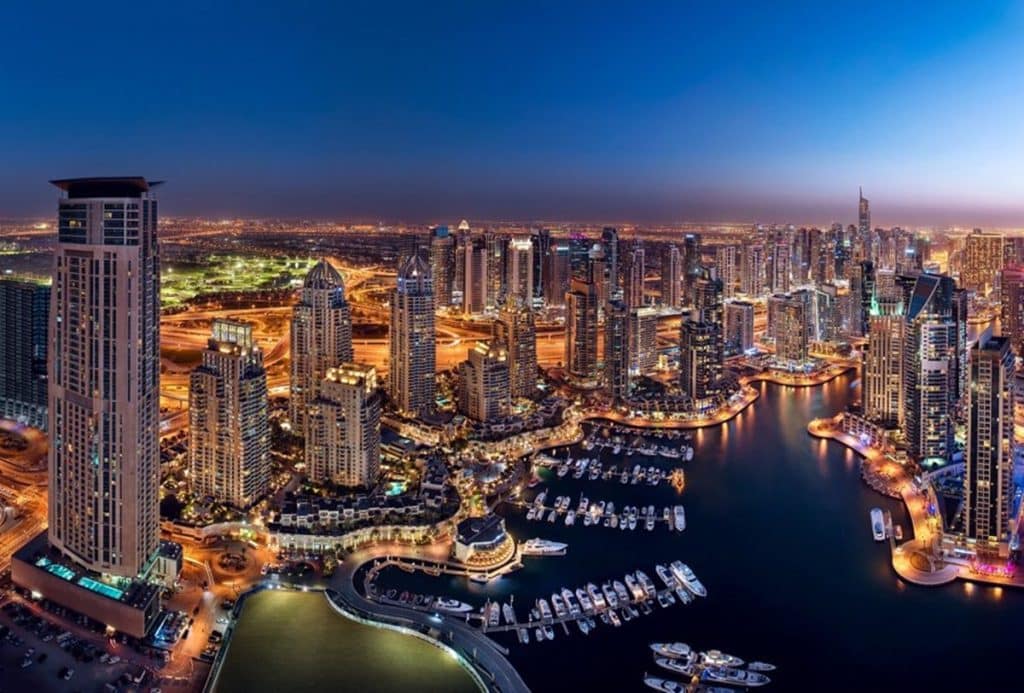
With supply now becoming increasingly tight across prime and secondary locations, leasing volumes are now being constrained with more limited large-sized office transactions completed during the final quarter.
As of the end of December, average occupancy rates across assets tracked by CBRE had reached 94 per cent, up from 92 per cent, a year earlier.
This trend is expected to prevail through 2025 as new deliveries remain limited and as the non-oil countries grow and generate more employment growth.
Office rentals have continued to move upwards through the fourth quarter with average leasing rates increasing by around 20 per cent respectively year-on-year as compared to Q4 2023.
Reviewing the hospitality sector, in the 11 months to November 2024, Dubai recorded an increase of around 9 per cent in international visitors as compared to the same period last year.
In terms of performance in Dubai, ADRs for the first 11 months increased by 2 per cent compared to 2023, while the RevPAR increased by 3 per cent.
In UAE’s retail market, supply remains incredibly tight across prime retail assets, with retailers currently struggling to fulfil requirements for new units across tier one assets.
Amid a buoyant non-oil economy, which is being very well supported by Dubai’s record tourism numbers and a growing domestic population, the country’s retail market continues to go from strength to strength with cyclical high occupancy rates and rents.
However, while overall performance remains positive, more tenants are now starting to push back on landlord requests for rental increases, unable to justify new lease terms amid a highly competitive business environment that is increasingly relying on price discounting to support demand.
Market dynamics have remained consistent through 2024, with demand outpacing supply resulting in sustained rental growth. In Dubai, the increase has been close to 4 per cent after seeing massive growth over the past three years, pushing the boundaries of what many tenants are willing to and or able to pay.
The industrial and logistics sector continues to benefit from positive market dynamics and a strong macro environment.
This was demonstrated by the success of the Transport and Storage sector in H1 2024, which was recorded as the fastest growing non-oil sector, expanding by 8.4 per cent year-on-year versus the same period in 2023.
Trade activities have emerged as the single biggest contributor to non-oil, accounting for 16.5 per cent of UAE GDP, followed by manufacturing at 15 per cent.
Dubai’s warehousing rents have increased by close to 16 per cent year-on-year in Q4 versus the same quarter last year.

The rental gap between Grade A and B properties has narrowed to single digits, as the lack of supply has effectively levelled the playing field.
Occupancy rates for logistics spaces and industrial lands have risen slightly through 2024, supported by a heavily landlord-favoured market.
While developers are slowly starting to address the obvious dearth of supply by building speculative warehouses, new supply is not anticipated to come onstream in any real quantum until H2 2025 at earliest.
During the quarter, there was a general shift towards smaller space requirements across the industrial space, likely a wider impact of the limited supply, with occupiers taking short term space requirements to fill the gap.
Matthew Green, Head of Research CBRE MENA said: “The UAE’s real estate market continue to attract rising foreign investor interest, supporting record residential transactional volumes across Dubai during 2024.
“Commercial sectors also remain buoyant, with demand largely outstripping supply, as reflected in the rising occupancy and rental rates across the office, retail and industrial markets.”
“Amid these highly positive market dynamics, the UAE government has moved to ensure the long-term sustainability of the real estate market, by implementing several new regulations in recent weeks.
“These changes have been aimed at improving transparency, through the Dubai Smart Rental Index, expanding the addressable market, via recent changes to Dubai’s designated Freehold areas, and in cooling the off-plan market, through the UAE Central Bank’s amendment to lending regulations on transactional set-up fees.”

